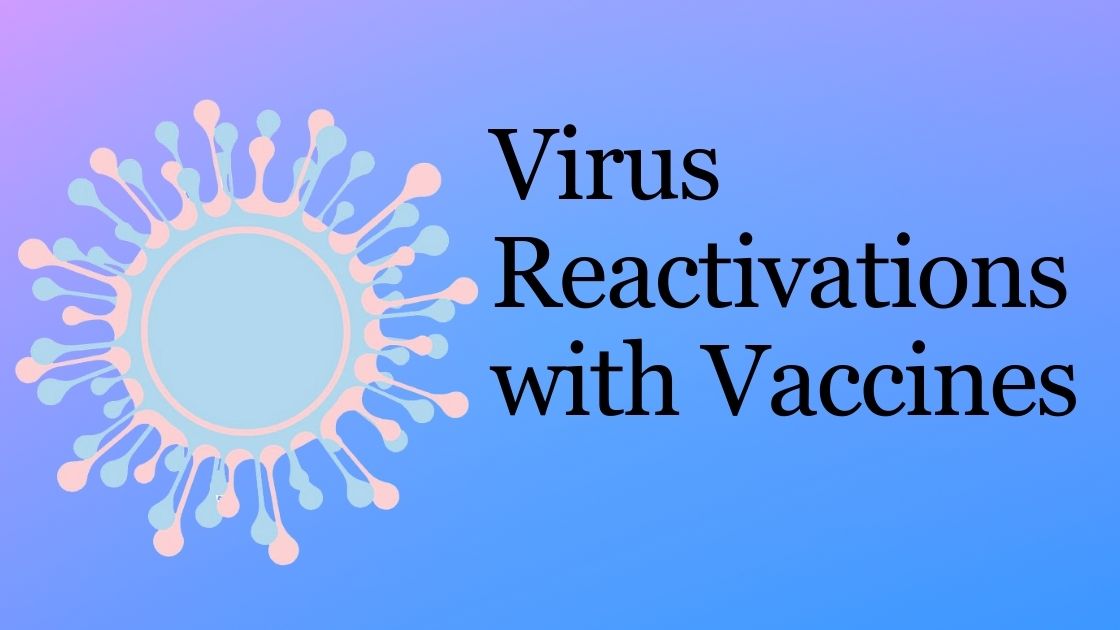Published: May 2022, Clinical and Experimental Vaccine Research
Summary: A 24-year-old man developed a red and scaly rash on his skin after receiving the second dose of the Comirnaty COVID-19 vaccine made by BioNTech/Pfizer. He also tested positive for Epstein-Barr virus (EBV) reactivation. The COVID-19 vaccines have been associated with increased activity of T helper type 1 cells in the immune system, which can cause an imbalance. Reactivation of the EBV virus after COVID-19 vaccination has been suggested but was only seen in immunocompromised people until now. This is the first case of EBV reactivation and skin rash after the COVID-19 vaccine in an otherwise healthy patient.
Study: Chronic viral coinfections differentially affect the likelihood of developing long COVID
Published: Dec 2022, The Journal of Clinical Investigation
Summary: A study investigated whether chronic viral infections, such as Epstein-Barr virus (EBV), cytomegalovirus (CMV), and HIV, could be linked to long COVID (LC) symptoms.
The study analyzed a cohort of 280 adults who had previously been infected with SARS-CoV-2. The study assessed their medical history and performed serological testing for Epstein-Barr virus (EBV) and Cytomegalovirus (CMV). Results showed that fatigue and neurocognitive dysfunction, two common LC symptoms, were independently associated with recent EBV reactivation or high EBV antibody levels, but not with ongoing EBV infection.
HIV infection was also linked to neurocognitive LC, while prior CMV infection was linked to a lower likelihood of developing neurocognitive LC.
Study: Investigation of Long COVID Prevalence and Its Relationship to Epstein-Barr Virus Reactivation
Published: June 2021 Journal Pathogens
Summary: In this study, researchers investigated the prevalence of long COVID symptoms in 185 COVID-19 patients and their association with Epstein-Barr virus (EBV) reactivation. The prevalence of long COVID symptoms was found to be 30.3%, and some initially asymptomatic patients later developed long COVID symptoms.
The study found that 66.7% of long COVID patients tested positive for EBV reactivation, compared to only 10% of control subjects. This suggests that many long COVID symptoms may be due to COVID-19-induced EBV reactivation rather than a direct result of the SARS-CoV-2 virus.
Published: Oct 2022, European Journal of Internal Medicine
Summary:A systematic review was conducted to investigate the occurrence of varicella zoster virus (VZV) reactivation, which can cause shingles, following COVID-19 vaccination.
The review analyzed 55 articles published until December 31, 2021, that met the inclusion criteria. From the published case studies, a total of 179 (82.1%) patients who received the COVID-19 vaccine and 39 (17.9%) COVID-19 patients experienced VZV manifestations. The median age of the vaccinated patients was 56.5 years, and 56.8% were female. Most of them (84.4%) received mRNA vaccines, and 16.8% were immunosuppressed. The median latency time after vaccination was 6 days.
The most common manifestation was dermatome herpes zoster rash (shingles), which accounted for 86.4% of events in vaccinated patients. Serious VZV events occurred in 11.3% of vaccinated patients, but no deaths or VZV pneumonia were reported. Antiviral prescriptions were made in 96.2% of vaccinated patients.
Study: Herpes zoster emergence following mRNA COVID‐19 vaccine
Published: May 2021, Journal of Medical Virology
Summary: A 79-year-old man with hypertension, coronary artery disease, and antineutrophilic cytoplasmic antibody-related glomerulonephritis had a case of varicella-zoster virus (VZV) reactivation after receiving an mRNA COVID-19 vaccine. He had itchy and painful lesions over his right thigh one day after vaccination. He did not experience any other COVID-19 symptoms such as fever, chills, dyspnea, or cough. A dermatologist diagnosed the man with herpes zoster infection based on the distribution of the vesicles and prescribed systemic antiviral treatment, which led to a full recovery. The man’s glomerulonephritis was in remission, and he had not taken any immunosuppressive drugs for over three months. This case illustrates a rare but possible side effect of COVID-19 vaccination, which could be easily diagnosed and treated.
